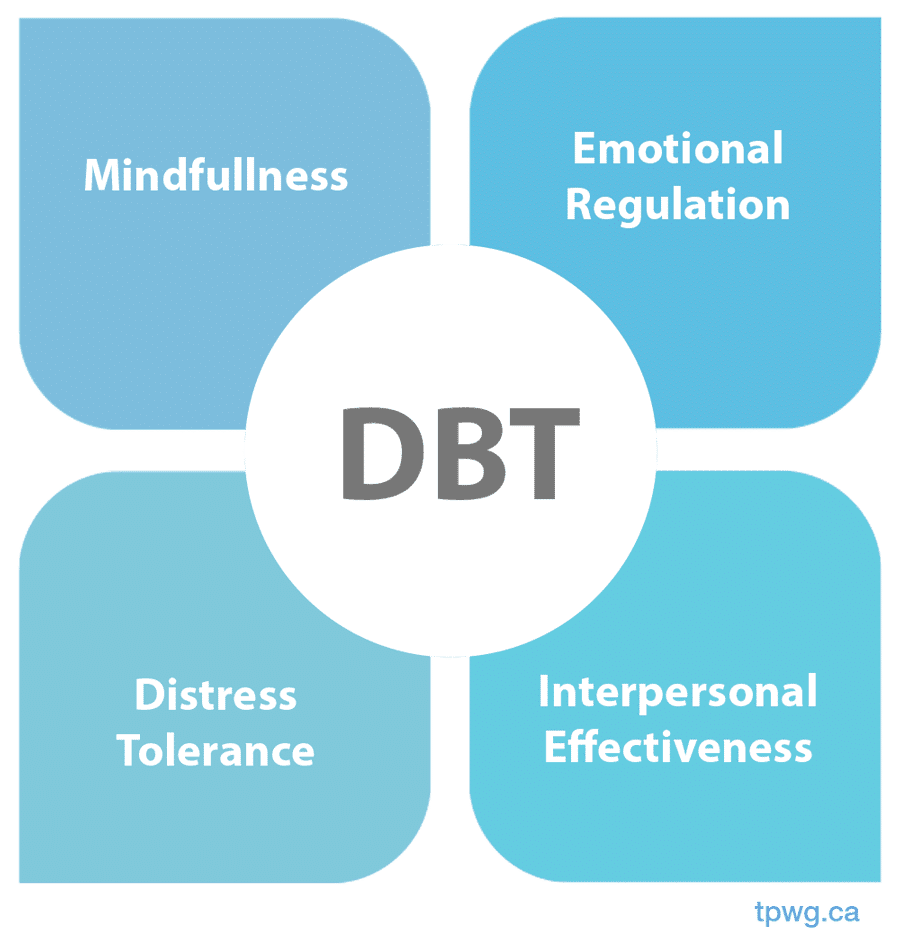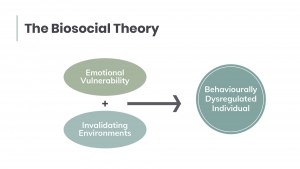Changing Lives: DBT London's Holistic Technique to Recovery
Changing Lives: DBT London's Holistic Technique to Recovery
Blog Article
Encouraging Individuals Via Effective Dialectical Behaviour Therapy (DBT) Solutions: Building Stronger Mental Wellness Foundations
In the world of mental wellness and health, the importance of equipping people via effective Dialectical Practices Therapy (DBT) services can not be overstated. By concentrating on the core concepts of DBT, such as enhancing psychological guideline skills, improving interpersonal effectiveness, constructing distress tolerance methods, and growing mindfulness practices, people can start a trip in the direction of building stronger psychological health structures. The impact of DBT exceeds simple signs and symptom monitoring; it uses a holistic approach that gears up individuals with the tools needed to navigate life's difficulties with resilience and self-awareness. As we discover the transformative capacity of DBT in equipping individuals to lead more fulfilling lives, the path to enhanced psychological wellness and wellness becomes a compelling narrative that bids exploration.
Comprehending the Core Principles of DBT


One core principle of DBT is validation. Therapists utilizing DBT recognize the person's sensations and habits as legitimate actions to their setting. This recognition aids develop a strong therapeutic alliance and motivates patients to function towards change. Another basic element is dialectics, which educates people to see scenarios from multiple perspectives and locate the synthesis between contradictory thoughts or emotions.
Additionally, the concept of dialectical abstinence is main to DBT. This concept encourages individuals to abstain from suicidal actions while also approving themselves. By understanding and including these core principles, therapists can effectively apply DBT techniques and assistance individuals in their journey in the direction of emotional guideline and mental well-being.
Enhancing Psychological Policy Skills
Developing proficiency in taking care of emotions is a basic element of promoting emotional wellness and interpersonal performance - DBT London. Enhancing psychological law skills is a core component of Dialectical Practices Treatment (DBT) that gears up people with the devices to navigate intense emotions in a constructive and healthy and balanced manner. Through DBT, individuals learn to recognize, comprehend, and manage their emotions, resulting in boosted mental health and wellness end results
DBT highlights the importance of mindfulness, which includes existing in the moment without judgment. This method enables individuals to observe their feelings without coming to be overwhelmed by them, boosting their ability to react successfully as opposed to react impulsively. By cultivating mindfulness, individuals can develop a better sense of self-awareness and emotional control.
Additionally, DBT teaches practical abilities such as distress tolerance and emotion regulation techniques to assist individuals handle difficult feelings. By learning these abilities, individuals can reduce spontaneous actions, enhance decision-making, and enhance their partnerships with others. Inevitably, enhancing emotional law skills via DBT equips people to lead more satisfying and balanced lives.

Improving Interpersonal Efficiency
Having actually developed a solid foundation in psychological guideline skills within the structure of Dialectical Behaviour Treatment (DBT), the focus now changes in the direction of enhancing social efficiency. Improving interpersonal effectiveness is an important component of DBT as it gears up individuals with the needed skills to browse social communications, connect successfully, set limits, and construct healthier connections.
In DBT, interpersonal effectiveness skills are educated with components that focus on areas such as assertiveness, reliable interaction, and interpersonal problem-solving. By discovering these abilities, people can improve their ability to share their needs and desires, maintain pride, and build stronger links with others.
Practicing mindfulness is an indispensable part of improving social efficiency within the DBT structure. Mindfulness allows individuals to be present in their interactions, pay attention actively, and react thoughtfully instead of respond impulsively. By including mindfulness right into their day-to-days live, individuals can cultivate greater self-awareness and psychological law, which are vital for successful interpersonal communications.
Building Distress Resistance Techniques
Discovering efficient strategies for managing emotional distress is vital for individuals seeking to boost their coping skills and strength. Structure distress tolerance strategies is a critical aspect of Dialectical Behaviour Therapy (DBT) that equips people to browse tough feelings without becoming overloaded - DBT London. One basic strategy in DBT for distress tolerance is the phrase "ACCEPTS," which means Activities, Contributing, Comparisons, Emotions, Pressing away, Thoughts, and Sensations. By making use of these approaches, people can effectively handle stressful situations and manage their emotional feedbacks.
Furthermore, mindfulness techniques play a substantial function in building distress resistance. Mindfulness encourages individuals to remain existing in the minute without judgment, permitting them to observe their thoughts and emotions without reacting impulsively. This awareness allows people to endure distress more properly and develop a greater feeling of control over their actions.
In addition to these techniques, creating a tailored distress resistance strategy with the advice of a qualified therapist can provide people with a tailored approach to taking care of psychological distress - DBT London. By incorporating these approaches into life, people can reinforce their mental health and wellness structures and boost their overall well-being

Cultivating Mindfulness Practices
To grow their distress resistance techniques further, people can concentrate on growing mindfulness techniques as a complementary strategy within the structure of Dialectical Behaviour Therapy (DBT) Mindfulness, a key component of DBT, involves paying attention to the here and now moment without judgment. By fostering mindfulness, individuals can boost their understanding of ideas, feelings, and physical experiences, site here promoting a deeper understanding of themselves and their experiences.
Mindfulness methods in DBT include methods such as conscious breathing, body scans, and observing ideas without add-on. These methods urge people to develop a non-reactive position towards their internal experiences, allowing them to reply to difficult circumstances with greater clearness and composure. By incorporating mindfulness into day-to-day regimens, people can find out to manage their feelings more successfully, decrease impulsive actions, and cultivate a feeling of internal tranquility.
Through growing mindfulness practices, individuals undertaking DBT can build a solid foundation for managing stress, enhancing relationships, and improving general well-being. By integrating mindfulness into their restorative journey, individuals can create useful skills that equip them to navigate life's difficulties with durability and self-awareness.
Final Thought
To conclude, effective Dialectical Behaviour Treatment (DBT) services play an essential function in encouraging people to build stronger psychological health structures. By understanding the core principles of DBT, enhancing psychological guideline abilities, enhancing interpersonal performance, constructing distress tolerance techniques, and growing mindfulness methods, people are outfitted with the necessary tools to navigate their emotions, relationships, and difficulties in an extra flexible and resistant manner. DBT solutions use a comprehensive strategy to advertising psychological health and encouraging individuals to lead satisfying lives.
By concentrating on the core concepts of DBT, such as improving emotional regulation skills, boosting interpersonal performance, building distress tolerance strategies, and cultivating mindfulness methods, people can get started click here for info on a journey towards structure more powerful mental wellness structures. Enhancing emotional guideline abilities is a core component of Dialectical Behaviour Treatment (DBT) that furnishes people with the tools to browse intense emotions in a positive and healthy and balanced fashion.Additionally, DBT instructs useful abilities such as distress resistance and emotion regulation methods to assist individuals manage tough feelings.To deepen their distress resistance techniques further, people can focus on cultivating mindfulness methods as a corresponding approach within the framework of Dialectical Behaviour Therapy (DBT) By understanding the core principles of DBT, improving psychological policy abilities, improving interpersonal effectiveness, constructing distress resistance methods, and cultivating mindfulness methods, people are equipped with the needed devices to navigate their emotions, relationships, and difficulties visit site in an extra adaptive and resilient way.
Report this page